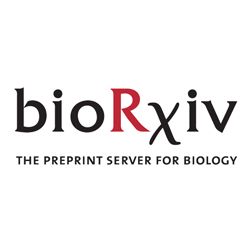
Studying sleep and navigation in 🧠s and 💻s.
Wu Tsai Investigator, Assistant Professor of Neuroscience at Yale.
An emergent property of a few billion neurons, their interactions with each other and the world over ~1 century.
My group will study offline learning in the sleeping brain: how neural activity self-organizes during sleep and the computations it performs. 🧵

That one prompt changed the way I write papers forever
That one prompt changed the way I write papers forever
Understanding the recipe is not the same as knowing how the cake tastes at inference.
Understanding the recipe is not the same as knowing how the cake tastes at inference.
We love to trash dominant hypothesis, but we need to look for evidence against the manifold hypothesis elsewhere:
This elegant work doesn't show neural dynamics are high D, nor that we should stop using PCA
It’s quite the opposite!
(thread)

We love to trash dominant hypothesis, but we need to look for evidence against the manifold hypothesis elsewhere:
This elegant work doesn't show neural dynamics are high D, nor that we should stop using PCA
It’s quite the opposite!
(thread)
www.izhikevich.org/publications...
2) I would be happy to mentor a project like this. If you want to do a project eg at the intersection of Philosophy of Science and NeuroAI, please feel free to reach out to discuss, or just put my name as a suggested mentor!
For more details & submission requirements, visit: philandneuro.com/mentorship
(This is 1/2 announcements we will make over the next 1-2 weeks.)

2) I would be happy to mentor a project like this. If you want to do a project eg at the intersection of Philosophy of Science and NeuroAI, please feel free to reach out to discuss, or just put my name as a suggested mentor!

bsky.app/profile/did:...
which shows you posts that people who liked the same things as you liked 🫧📌
It finds people who liked the same posts as you, and shows you what else they've liked recently.
📌 Pin to add it to your top bar
❤️ Like the feed and repost to spread the goodness
bsky.app/profile/did:...
which shows you posts that people who liked the same things as you liked 🫧📌
-CA3-like (sparse lognormal) connectivity gives a hippocampus-like (orthogonalized) map
-non-spatial representation! splitters, lap/time cells, action plan…we got it all🤑
-CA3-like (sparse lognormal) connectivity gives a hippocampus-like (orthogonalized) map
-non-spatial representation! splitters, lap/time cells, action plan…we got it all🤑

This year, no one from NIH will attend due to the gov't implosion.

“Oh and btw we’ll learn a lot more about the shit that doesn’t in the process anyway.” 🫣
“Oh and btw we’ll learn a lot more about the shit that doesn’t in the process anyway.” 🫣




